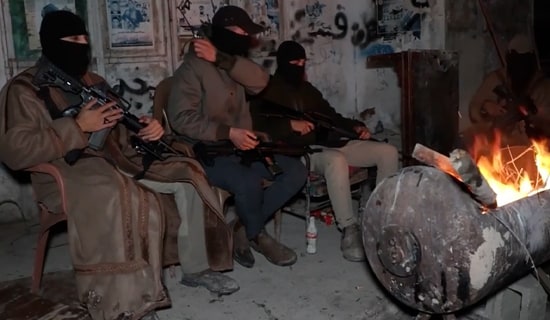
In the wake of Egyptian Foreign Minister Sameh Shoukry's visit to Israel and President Al-Sisi's recent push for Israeli-Palestinian peace talks, a debate was held by the Al-Jazeera network on Egypt-Israel relations. Poet and activist Abdul Rahma Yusuf, the son of leading scholar Sheikh Yousuf Al-Qaradhawi, called the Egyptian regime's efforts "high treason," and declared: "The coexistence that these people are talking about is coexistence between a cockroach and the sole of the Israeli shoe." His adversary, Washington-D.C.-based Egyptian researcher Tawfik Hamid, countered that rejection of the peace efforts was what constituted high treason. "[The Palestinians] must give peace a chance, like Egypt did," he said, enumerating the ways in which Egypt had benefited from its peace accord.
Following are excerpts
Abdul Rahma Yusuf: We are facing a full-scale and out-in-the-open crime of high treason. I know that some have reservations about using the word "treason," as if this were some kind of curse or profanity, but I am talking about a crime called "high treason" by the law - a crime that is being perpetrated by the Egyptian regime day in and day out, in public and shamelessly.
[...]
The Egyptian regime today is more Likud-Zionist than the Israeli Zionists themselves.
TV host: That's your opinion, but what facts do you have to support this assumption?
Abdul Rahma Yusuf: Was there ever, in the course of history, a regime that voluntarily gave its land to its enemy? The Straits of Tiran... Was there, in the course of history - even in the history of military regimes or the history of the occupation itself... Was there ever a country that occupied another country, and gave a piece of [the occupied] country to another country? We have heard of countries that occupied other countries, and divided them upon leaving... When Britain and France occupied the Arab world, they divided it up according to their interests... But Abdul Rahman, this is not an accurate description of the reality. The Egyptian regime gave the islands of Tiran and Sanafir to Saudi Arabia, not to Israel.
[...]
When the islands of Tiran and Sanafir were removed from Egyptian sovereignty, the Straits of Tiran became international straits, after having been purely Egyptian straits, under Egyptian sovereignty. They have become international waters, the property of all, and it is Israel that stands to gain from this.
[...]
Tawfik Hamid: I believe that the two-state solution, or peace, must start, on the Palestinians' side, with a clear expression of their intention to live in peace with the other side. But if the Palestinian side spreads the notion that all Jews should be slaughtered, or that the State of Israel should be wiped out - well, this notion is unrealistic.
Moreover, this notion and this incitement have been used for years and years, and what was the outcome? A sharp decline in the condition of the Palestinians. If you compare it to their condition at the time of the Partition Resolution - or even in the days of Anwar Sadat - you will see that their curve is in constant decline, their political capabilities have weakened, the land under their control has diminished, and they are in a state of failure. It is unreasonable to insist upon employing the same method time and again, for decades, even though this method has proven to be a failure.
I believe that they must give peace a chance, like Egypt did. Through peace, Egypt managed to regain the Sinai. We managed to control the Suez Canal, to get natural gas, and to rejuvenate tourism in the Sinai. Egypt benefited from peace. I believe that rejection of the peace efforts is what, in fact, constitutes high treason.
My colleague accused the Egyptian regime of committing high treason, but let me ask: Does taking care of your country and your people's interests constitute high treason? Is it high treason to strive for peace? Or is it high treason to strive for war, and to bring about the failure of your nation and your country, as some Palestinian leaders did? In my view, the Egyptian regime should not be accused of treason. On the contrary, this is a patriotic regime, which seeks the best interests of Egypt and the region as a whole.
[...]
Abdul Rahma Yusuf: The coexistence that these people are talking about is coexistence between a cockroach and the sole of the Israeli shoe. The people who claim that we must respect the existence of Israel and succumb to the reality... It's like asking a man whose wife's honor was violated to respect the sexual appetite of the attacker.
[...]
Tawfik Hamid: The evaluation of President Al-Sisi's actions, of the Egyptian regime, and of FM Sameh Shukri's visit [to Israel] should be based on whether or not they serve Egyptian interests.
[...]
The traditional methods of fanning the flames of war and hatred in the region did not and will not help. They bear negative fruits.
[...]













